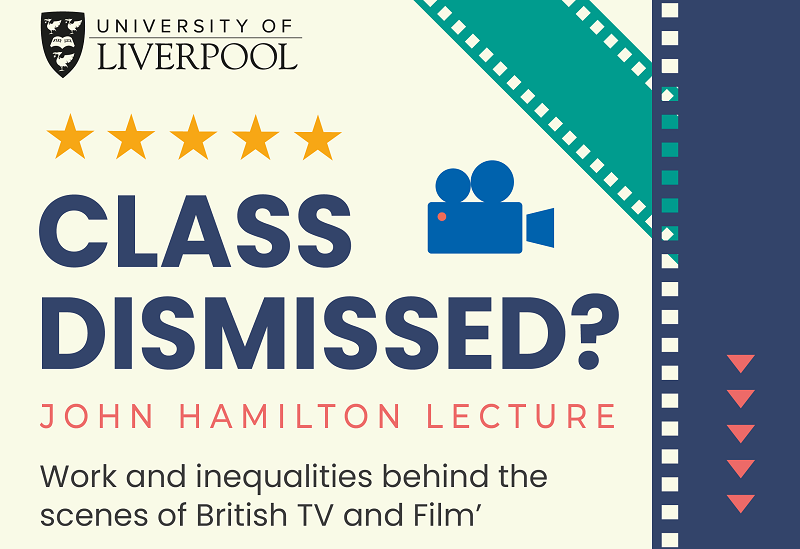The 2007-2017 John Hamilton Lifelong Learning lecture programme
John Hamilton bequeathed a fund to the University of Liverpool which came to the University’s Centre for lifelong Learning in 2007, following his death the previous year. The trust was intended to be used to support and promote the education of working-class people.
Supported by the John Hamilton trust, the Centre for Lifelong Learning ran an annual lecture in his name: The ‘John Hamilton Life Long Learning Lecture’.
Past events:
• 2012 lecture. 'Being Human. Becoming a Person'. Speaker: Steven Rose
• 2013 lecture. ‘Inequality: the enemy between us’. Speaker: Kate Pickett.
• 2014 lecture. ‘Art Galleries Should Be More Like Newspapers’. Speaker: Bob and Roberta Smith
• 2016 lecture. 'Leaving Reality: The UK and the rest of Europe'. Professor Danny Dorling
The John Hamilton legacy - 2024 and beyond
In reinstituting the John Hamilton Lifelong Learning lecture, we hope to provide a bridge between the University and the people of the City in which it is located. The lecture is a way of celebrating a local figure who made a contribution to education and the University, and a way of demonstrating how much we in the University value our City and the students amongst us who hail from Liverpool.
Recent events:
30/10/2024 - Speaker: Professor Beth Johnson, Professor of Television and Media at the University of Leeds.
Title: "Class Dismissed - Work and inequalities behind the scenes in British TV and film"
An inclusive and representative media landscape is key to upholding democracy. This talk explored the persistent socio-economic inequalities that shape the British TV and film industries, focusing on the barriers faced by individuals from working-class backgrounds. Looking at workforce demographics, the talk highlighted the underrepresentation of diverse socio-economic groups in key behind-the-scenes roles. Examining on-screen representations and audiences, Professor Johnson offered reflection on class stereotyping and on the significant role of the British TV and film industries in shaping cultural narratives and public perceptions of social class. Focusing on the structures and practices through which class has been dismissed under broad creative diversity remits, the talk also addressed the intersectionality of class with race, region and gender, demonstrating how compounded inequalities further hinder access and progression within the industry, and proposed recommendations to enhance equitable hiring practices, envisioning a future where a diverse workforce leads to richer, more varied storytelling.

Back to: Education Quality and Enhancement